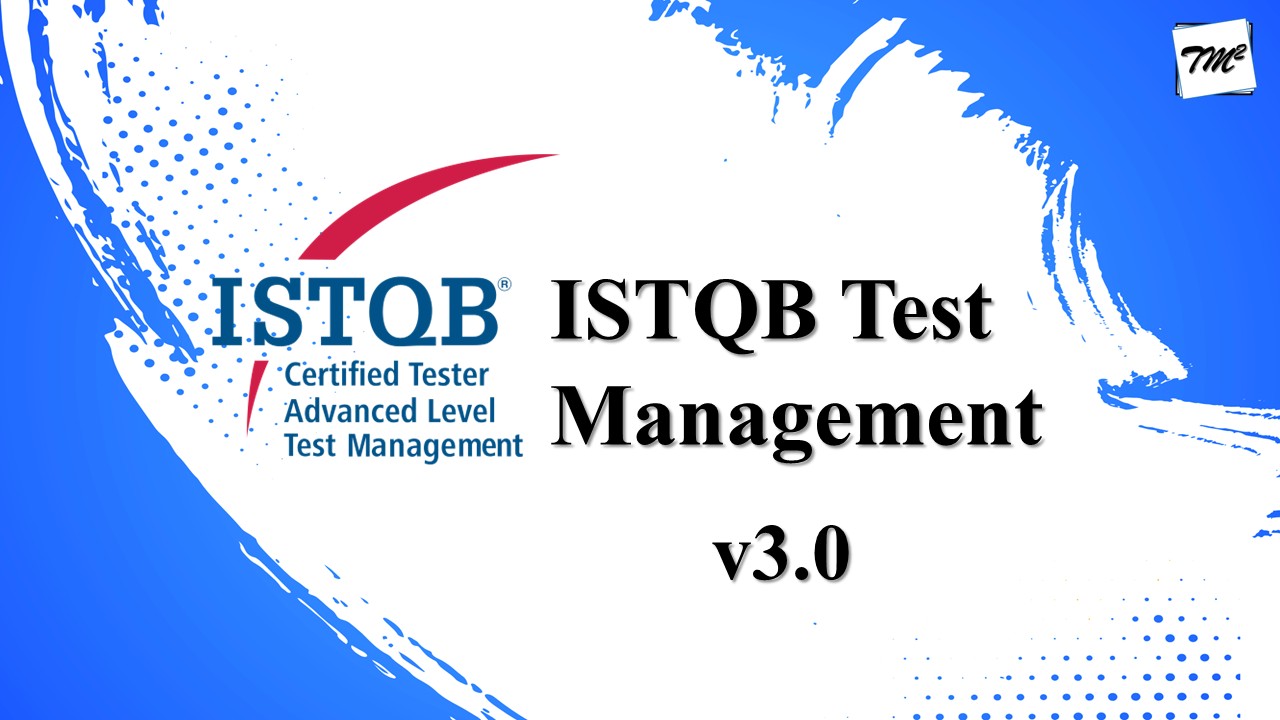The ISTQB® Advanced Level Test Management (CTAL-TM) certification provides the knowledge and competencies to take responsibility for managing all the testing activities across the software development lifecycle. It covers everything from how to design a suitable test approach for the project based on the organizational test strategy to building a test team or testing competencies to complete the necessary testing.
To gain this certification, candidates must hold the Certified Tester Foundation Level v4.0 or previous versions of the Foundation Level certificate and have sufficient practical experience.

This Advanced Level qualification is aimed at anyone involved in the management of software testing. This includes people in roles such as testers, test consultants, test managers, user acceptance testers, scrum masters, project managers or product owners. This Advanced Level Test Management qualification is also appropriate for anyone who wants an advanced understanding of software testing such as project managers, quality managers, software development managers, business analysts, IT directors and management consultants. Holders of the Advanced Level Test Management Certificate will be able to go on to the ISTQB® Expert Level software testing qualifications. The ISTQB® Certified Tester Advanced Level – Test Manager or Test Management certificate is valid for life and does not require renewal. The certificate is recognized internationally and demonstrates the candidates’ professional competence and credibility in test management.
-> The Test Process
• Test Planning Activities
• Test Monitoring and Control Activities
• Test Completion Activities
• The Context of Testing
-> Test Stakeholders
• Importance of Stakeholders’ Knowledge in Test Management
• Test Management in a Hybrid Software Development Model
• Test Management Activities for Various Software Development Lifecycle Models
• Test Management Activities at Various Test Levels
• Test Management Activities for Different Test Types
• Test Management Activities to Plan, Monitor, and Control
• Risk-Based Testing
-> Testing as a Risk Mitigation Activity
• Identification of Quality Risks
• 1Quality Risk Assessment
• Quality Risk Mitigation Through Appropriate Testing
• Techniques for Risk-Based Testing
• Success Metrics and Difficulties Associated with Risk-Based Testing
• The Project Test Strategy
-> Choosing a Test Approach
• Analyzing the Organizational Test Strategy, Project Context and Other Aspects
• Definition of Test Objectives
• Improving the Test Process
-> The Test Improvement Process (IDEAL)
• Model-Based Test Process Improvement
• Analytical-Based Test Process Improvement Approach
• Retrospectives
• Test Tools
-> Good Practices for Tool Introduction
• Technical and Business Aspects for Tool Decisions
• Selection Process Considerations and Return on Investment Evaluation
• Tool Lifecycle
• Tool Metrics
-> Test Metrics
• Metrics for Test Management Activities
• Monitoring, Control and Completion
• Test Reporting
->Test Estimation
• Estimating What Activities Testing Will Involve
• Factors Which May Influence Test Effort
• Selection of Test Estimation Techniques
-> Defect Management
• Defect Lifecycle
• Cross-functional Defect Management
• Specifics of Defect Management in Agile Teams
• Defect Management Challenges in Hybrid Software Development
• Defect Report Information
• Defining Process Improvement Actions Using Defect Report Information
-> The Test Team
• Typical Skills within Four Areas of Competence
• Analyze Required Test Team Member Skills
• Assessing Test Team Member Skills
• Developing Test Team Member Skills
• Management Skills Required to Manage a Test Team
• Motivating or Demotivating Factors for a Test Team in Certain Situations
-> Stakeholder Relationships
• Cost of Quality
• Cost-benefit Relationship of Testing